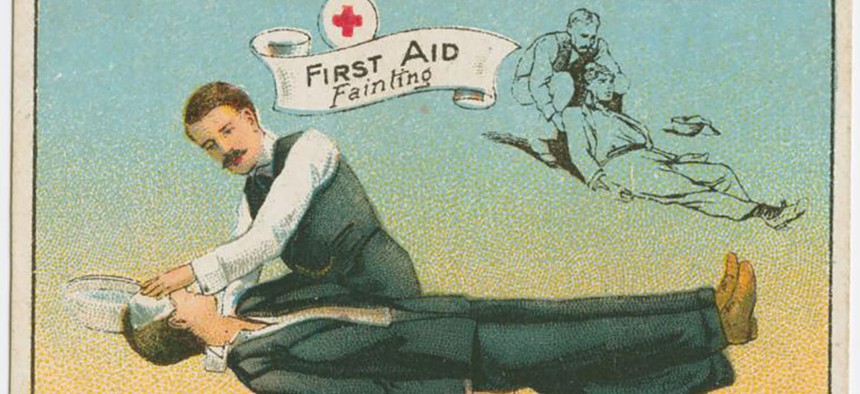
New York Public Library digital collection
There’s a Great Tradition of Fainting in Politics and Government
Franklin Pierce became the fourteenth president despite the nickname "Fainting Frank."
The stress, the public scrutiny, the crazy travel schedule, the spotlight, the heat. Even powerful world leaders let their humanity slip sometimes, and there’s perhaps no better demonstration than the fainting spell.
After spending an hour and a half at the September 11 commemoration ceremony at Ground Zero in Manhattan today, Hillary Clinton left abruptly, absconding to her daughter’s apartment. Clinton’s spokesman said she felt “overheated.” New York City has had a humid week, with temperatures hovering around 80°F (27° C), and observers noted that the 68-year old presidential candidate looked “wobbly” on her way out.
Hillary Clinton 9/11 NYC pic.twitter.com/q9YnsjTxss
— Zdenek Gazda (@zgazda66) September 11, 2016
Hours later, Clinton told reporters she was “feeling great” and her campaign disclosed that the presidential candidate is being treated for pneumonia. The illness was also behind her recent coughing spell.
Fainting, also medically referred to as vasovagal syncope, occurs because of a decrease in blood flow to the brain. While skeptics have been quick to jump on Clinton’s lightheadedness as evidence of ailing health, in the annals of US political theater, she is hardly the only one to get the dizzies in public.
Franklin Pierce became the fourteenth US president despite the nickname “Fainting Frank.” His detractors gave him the monicker after he passed out twice during battles in 1847. In 1992, George H. Bush famously fainted after vomiting at a state dinner hosted by Japanese prime minister Kiichi Miyazawa. And in 2002, his son, George W. Bushbriefly lost consciousness after choking on a pretzel.
Bill Clinton had to prop up his incoming chief of staff William Daley after he fainted during his own appointment ceremony.
And the fainting can happen to anyone. Barack Obama and Bernie Sanders both famously interrupted speeches to help supporters standing near them who were about to pass out.






